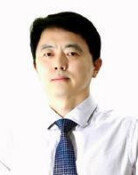[Op-Ed] Public Safety and Human Rights
The position of prosecutor was created in Europe in the wake of the French Revolution that began in 1789 and lasted five years. Before that, the European justice system adopted the principle of inquisition under which judges ruled.
Under the system, courts abused the system and were criticized for frequently violating human rights. After the French Revolution, a new trial system was introduced to protect human rights in accordance with the impeachment system, where a criminal trial could take place only after organizations other than a court conducted prosecution. Prosecutors were created as an entity for prosecution.
The job of prosecutor initially sought to protect human rights. Investigation was not a prosecutors main job from the start. Frances introduction of a three-party criminal trial consisting of a judge, prosecutor and defendant (lawyer) began to spread. Following the lead of Germany and Japan, Korea adopted the trial system. The main function of Japans prosecutors is prosecution rather than investigation. For Korean prosecutors, however, investigation comes before prosecution. This explains why prosecutors are a major power, but the head of the prosecution division is considered an insignificant position.
The Korean prosecution system is deeply related to the ideological conflicts that have raged since the division of the Korean Peninsula and the reign of authoritarian administrations for nearly 30 years. Military governments suffered from bringing the rule of law because of endless controversy over their legitimacy. Consequently, prosecutors as a critical body for the rule of law played a big role in maintaining the country and government. The duty of prosecutors to protect human rights was weakened. Prosecutors in charge of public safety who handled collegiate communist movements and labor problems under authoritarian rule were well treated, but endless questions over human rights were raised.
Chun Sung-gwan, who has been nominated for prosecutor-general, told a news conference Monday, When public safety is well guaranteed, so are human rights. He made this comment after opposition parties questioned his track record as a prosecutor responsible for public safety. In addition to prosecutors in charge of public safety, all prosecutors have a basic responsibility for public safety, he said. Chun apparently meant that public safety and human rights are not opposite concepts at a time when the nation undergoes democratization. A new responsibility for public safety is to prevent as much as possible vandalism by certain groups from inflicting human and property losses on the majority of the people.
Editorial Writer Yuk Jeong-soo (sooya@donga.com)






